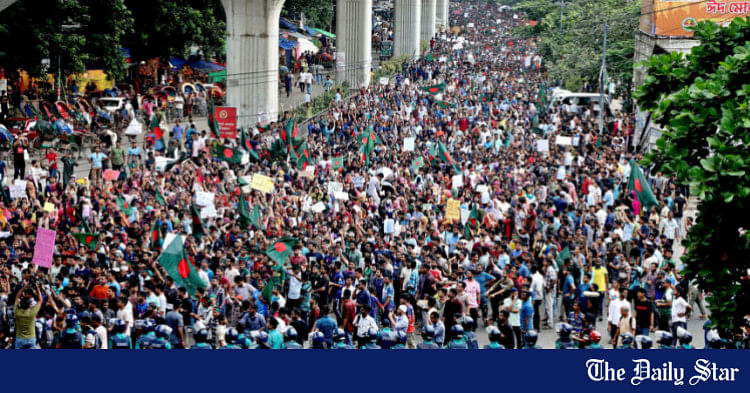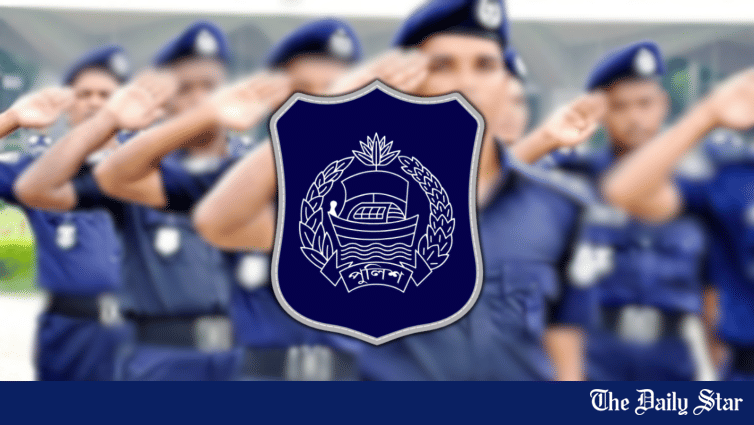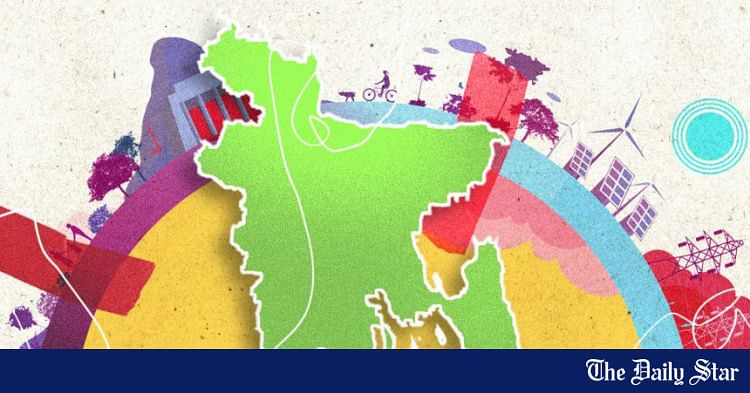Saif
Senior Member
- Jan 24, 2024
- 11,081
- 6,116
- Origin

- Residence

- Axis Group

2024: A year of economic turmoil and transformation for Bangladesh

The year 2024 stands out as one of the most eventful and challenging periods in Bangladesh's economic history. The nation grappled with an unprecedented banking crisis, soaring inflation, and several persistent macroeconomic challenges. These included low foreign exchange reserves, high youth unemployment, restricted imports, and sluggish export growth.
The convergence of these issues posed a significant test for policymakers and the resilience of the country's economy.
Amid these difficulties, the interim government undertook a series of crucial reforms to stabilise the economic situation. Key measures included reorganising the boards of directors of problem banks to address inefficiencies and corruption within the financial sector, adopting a contractionary monetary policy to curb inflation, and introducing greater flexibility in the foreign exchange market.
These steps represent a strategic shift towards strengthening economic governance and addressing structural inefficiencies that have long hindered Bangladesh's economic potential.
While the immediate effects of these measures were still unfolding in 2024, they have laid the groundwork for potential improvements in inflation control, employment generation, and export growth in the years ahead.
However, for the poor and vulnerable populations, 2024 was an especially difficult year. Rising prices of essential commodities, such as food and fuel, disproportionately affected those with limited financial resilience.
Price hikes of basic necessities, including rice, wheat, and edible oil, placed a significant strain on household budgets, exacerbating poverty and inequality. The economic pain was further compounded by two devastating floods, which disrupted agricultural production and threatened local food security.
Looking ahead to 2025, global market trends suggest that the prices of essential commodities like rice, wheat, and edible oil are likely to rise further, driven by supply chain disruptions and climatic challenges. To prevent a deepening crisis, the interim government must adopt proactive policies to safeguard the food supply and protect vulnerable populations.
The reforms initiated in 2024, combined with proactive policies in 2025, could lay the foundation for a more resilient and inclusive economy. While the challenges of 2024 exposed the vulnerabilities in Bangladesh's economic framework, they also provided an opportunity for transformative change.
By prioritising the welfare of its most vulnerable citizens and addressing structural weaknesses, Bangladesh can emerge stronger and more prepared for future economic uncertainties.
Md Deen Islam is associate professor of economics at the University of Dhaka.
The year 2024 stands out as one of the most eventful and challenging periods in Bangladesh's economic history. The nation grappled with an unprecedented banking crisis, soaring inflation, and several persistent macroeconomic challenges. These included low foreign exchange reserves, high youth unemployment, restricted imports, and sluggish export growth.
The convergence of these issues posed a significant test for policymakers and the resilience of the country's economy.
Amid these difficulties, the interim government undertook a series of crucial reforms to stabilise the economic situation. Key measures included reorganising the boards of directors of problem banks to address inefficiencies and corruption within the financial sector, adopting a contractionary monetary policy to curb inflation, and introducing greater flexibility in the foreign exchange market.
These steps represent a strategic shift towards strengthening economic governance and addressing structural inefficiencies that have long hindered Bangladesh's economic potential.
While the immediate effects of these measures were still unfolding in 2024, they have laid the groundwork for potential improvements in inflation control, employment generation, and export growth in the years ahead.
However, for the poor and vulnerable populations, 2024 was an especially difficult year. Rising prices of essential commodities, such as food and fuel, disproportionately affected those with limited financial resilience.
Price hikes of basic necessities, including rice, wheat, and edible oil, placed a significant strain on household budgets, exacerbating poverty and inequality. The economic pain was further compounded by two devastating floods, which disrupted agricultural production and threatened local food security.
Looking ahead to 2025, global market trends suggest that the prices of essential commodities like rice, wheat, and edible oil are likely to rise further, driven by supply chain disruptions and climatic challenges. To prevent a deepening crisis, the interim government must adopt proactive policies to safeguard the food supply and protect vulnerable populations.
The reforms initiated in 2024, combined with proactive policies in 2025, could lay the foundation for a more resilient and inclusive economy. While the challenges of 2024 exposed the vulnerabilities in Bangladesh's economic framework, they also provided an opportunity for transformative change.
By prioritising the welfare of its most vulnerable citizens and addressing structural weaknesses, Bangladesh can emerge stronger and more prepared for future economic uncertainties.
Md Deen Islam is associate professor of economics at the University of Dhaka.






